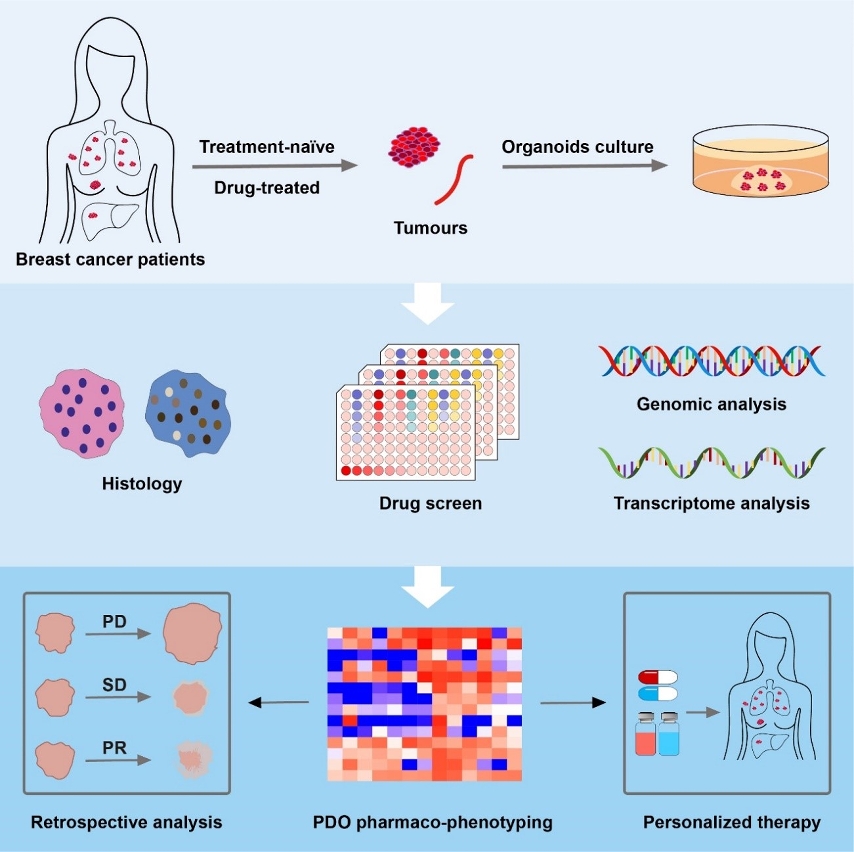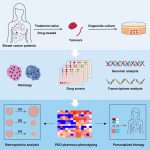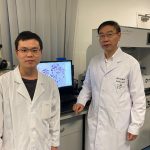 A precision medicine strategy for breast cancer based on the PDO model
A precision medicine strategy for breast cancer based on the PDO model
A research team in the University of Macau (UM) Faculty of Health Sciences (FHS), led by Chair Professor Chuxia Deng, recently made a breakthrough in the field of cancer precision medicine through its collaboration with Conde S Januário Hospital, the Affiliated Hospital of Southwest Medical University, the First Affiliated Hospital of Sun Yat-sen University, Sun Yat-sen University Cancer Center, and Zhuhai People’s Hospital. The research team used patient-derived organoids (PDOs), in vitro drug screening, and other techniques to provide individualised treatment suggestions for breast cancer patients, especially those with advanced breast cancer. The study has been published in Advanced Science.
Breast cancer is the most commonly diagnosed cancer among women worldwide. Recurrence and metastasis are the main causes of breast cancer death. The tumours often show resistance to drug treatment, and there has been no effective precise treatment strategy. UM researchers generated 99 organoid lines in vitro using tumour samples from breast cancer patients, and developed PDOs as a real-time platform for drug testing.
The results showed that breast cancer PDOs could preserve the biological characteristics of primary tumours. PDO pharmaco-phenotyping showed striking variability in the PDO response to the drug treatment. The PDO chemosensitivity profile largely paralleled the retrospective clinical data of the corresponding patients. Finally, PDOs were applied to guide personalised therapy for six patients with advanced cancer, all of whom showed good responses. Based on the above findings, the team proposed a novel precision treatment strategy for breast cancer based on drug screening of PDOs, which is a new direction for cancer precision medicine with important clinical significance.
In the past year, Prof Deng’s team has achieved multiple major breakthroughs in cancer precision medicine, and the results have been published in internationally renowned journals, including Nature Communications, Advanced Science, and Theranostics. In addition, UM officially received approval from the Ministry of Education in December 2020 to establish the Frontiers Science Center for Precision Oncology. The centre aims to provide cancer patients with high-end personalised medicine for preventive, diagnostic and therapeutic purposes.
The corresponding authors of the study are Prof Deng, Prof Lin Ying in the First Affiliated Hospital of Sun Yat-sen University, and Prof Shi Yanxia in Sun Yat-sen University Cancer Center. FHS postdoctoral fellow Chen Ping is the first author of the study. Other members of the FHS, namely Associate Professor Xu Xiaoling, research assistants Zhang Xu and Lyu Xueying, and PhD students Ding Renbo and Zeng Jianming, as well as medical doctor Yang Linglin in the Affiliated Hospital of Southwest Medical University also made important contributions to the study.
This study was supported by the Science and Technology Development Fund, Macao SAR (file numbers: 094/2015/A3, 0048/2019/A1, 0011/2019/AKP and 0034/2019/AGJ), UM (file numbers: CPG2021-00021-FHS and MYRG2017-00113-FHS), the National Natural Science Foundation of China (file number: NSFC-82030094), and the Ministry of Education Frontiers Science Center for Precision Oncology, UM. The full version of the related paper can be viewed at: https://onlinelibrary.wiley.com/doi/full/10.1002/advs.202101176.



